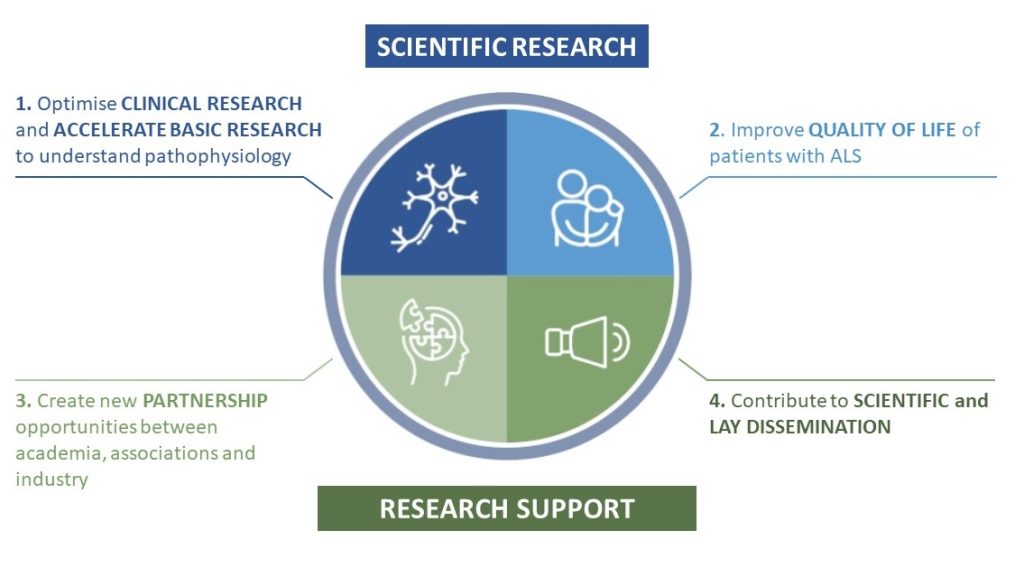The goal we set ourselves for 2025 is to steer research towards greater impact on patients. The priority is to support ‘clinically informed research’, which starts with understanding the characteristics of patients to generate new results with more translational potential, and to support excellent research to accelerate the diagnosis and the identification of effective interventions for the treatment and prevention of ALS.
Indeed, in this strategy we reaffirm the importance of getting to the root of the disease, but we also believe that research should be guided by knowledge of the clinical significance of what is being studied. For this reason, we will give priority to study proposals that consider the disease from a clinical perspective in the patient even when they are based on basic research, and encourage effective interaction between clinical and basic researchers.
The new strategic direction of AriSLA is therefore designed to pursue these goals, while also adhering to an international vision for ALS research outlined in 2022 by the National Institute of Neurological Disorders and Stroke (NINDS), the principal neurological research institute of the US Institutes of Health (NIH), which has also identified topics of high relevance and priority for the study of this disease.


